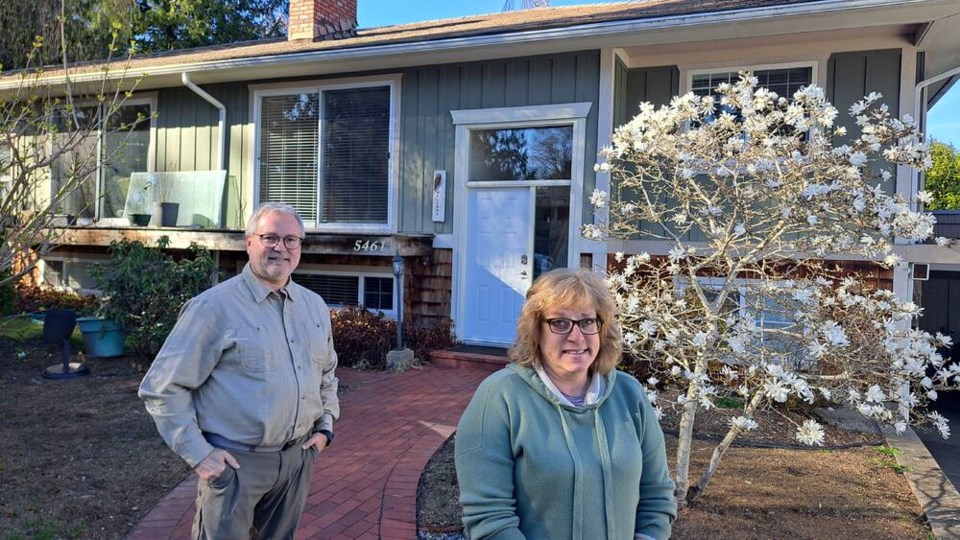The approaching May 1 deadline for new rules for short-term rentals is worrying Paul and Terry Kemp who’ve been operating their Airbnb since 2018.
The couple offers three separately rented bedrooms upstairs and a self-contained basement suite downstairs in the other half of the duplex they own in Tsawwassen.
The Kemps own and live in one side of the duplex and own the other side of the duplex. However, the rented side of the duplex is under a separate land title with a separate address.
The new Short Term Rental Accommodations Act allows only the host’s primary residence and only one secondary suite, that’s part of the residence, to be rented out as short-term rental.
“So that’s why we won’t be able to continue under the … (new) rules, is because it’s not our principal (residence),” Paul told the Optimist.
In a letter to provincial and municipal officials, the couple says they’ve rented the units out to short and long-term tenants since 2002, then made the switch to Airbnb in 2018.
“During this time, we have diligently created a safe, affordable, and stable rental environment for a diverse range of individuals and families for a variety of short-term needs,” they said.
Both are self employed and approaching retirement age.
After reading the new act and regulations, Paul said the new act will affect their Airbnb operation and keep them from continuing as short-term rental accommodation.
“It has to be primary principal residence only. And that duplex has a separate title, so we own both sides but they’re two different addresses, so that side is not considered our principal address,” Paul said. “Because they’re separate legal titles, both can’t be considered principal residences.”
He’s written to provincial and municipal officials making two suggestions; that South Delta be designated a tourist corridor, (because it serves as a conduit to Vancouver Island) and be exempt from restrictions on Airbnb; and that landlords be allowed to rent out at least one non-primary residence for short-term rentals.
The upstairs of the duplex that serves as a short-term rental has three privately rented bedrooms, with a shared kitchen, dining room and living room. Two of the bedrooms share a bathroom while the other has its own en suite. There’s also a self-contained suite in the basement.
The individual rooms go for $60 a night each, while the basement suite is more.
“Since March 2022, we’ve been 97 percent occupied,” he said, with a total of about 700 bookings in 2023.
Prices went up after COVID-19, but they didn’t raise their prices, he noted.
Paul said the accommodation mainly serves travellers on their way to Vancouver Island who need a room for the night, people stopping in from the airport, workers here temporarily or students in flight school at Boundary Bay Airport.
They also own an apartment in Richmond which they rent out long term.
Before they started using Airbnb the couple also gave a lower rent in the duplex suite for several years to a single mom who was just divorced.
He said that governments have unfairly characterized short-term rental landlords as greedy or wealthy but says that’s not who they are.
“We’re just trying to manage one property that’s right beside us and follow the rules and make it a win-win for the travellers, a win for Delta businesses and keeps the site up to snuff and just do a good job,” Paul said.
When the rules kick in, they’ll suspend their short-term rental operation saying they want to follow the rules.
He said operators were not consulted and there should have been a better process to address housing.
The City of Delta confirmed that the Short-Term Rental Accommodations Act limits such rentals to the host’s principal residence, plus a secondary suite within that residence. As well, the provincial legislation applies regardless of what local bylaws say.
“Municipalities also do not have the ability to enforce provincial legislation,” said the city.



